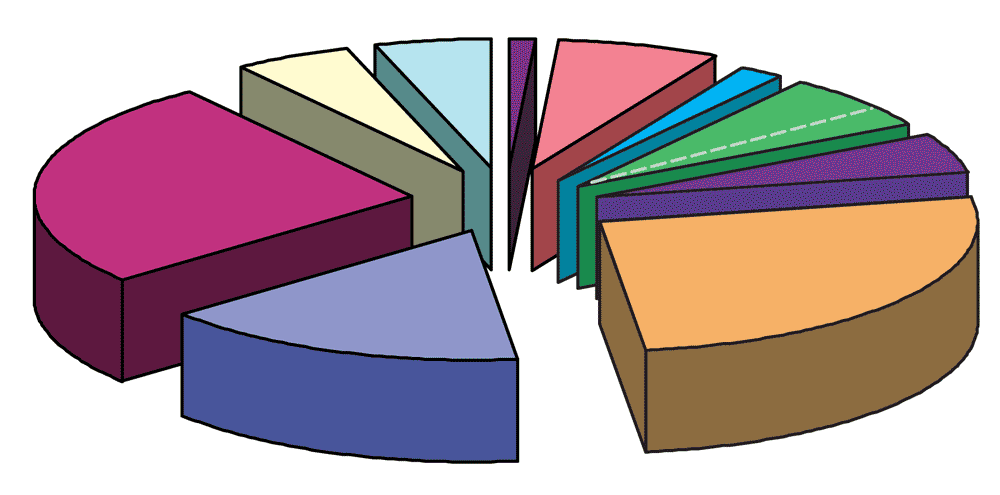Plastics are a resource
122,205 tons were disposed of at the landfill in 2019
What are plastics?
Plastics are typically derived from natural gas or petroleum. A variety of plastic resins, numbered 1 through 7, differ widely in chemical composition and are used to make a vast array of products such as sandwich bags, soda bottles, football helmets and park benches. Learn more about those pesky resin codes.
Why recycle plastic?
Most plastics can and should be recycled because in the landfill they are a wasted resource. Some plastics are recyclable in all King County curbside programs Download PDF , 1.6 MB. Other plastics are only accepted in some areas of the county, or must be taken to a collection area or drop box for recycling.

Because plastic resins vary so much, not all plastics are recyclable. The technology exists to recycle much of it, but lack of markets keeps all but the most common kinds from being recycled. The What Do I Do With page offers sources for recycling other kinds of plastic.
How do I know which plastics to recycle in the curbside program?
In King County, plastics collected at curbside Download PDF 1.5 MB are those that consumers generate in the largest amounts and for which there are markets. An easy way to remember is that narrow-necked bottles and jugs of colored and clear plastic are recyclable. Also, yogurt and other dairy tubs are recyclable. Lids, however are not recyclable. Recycle empty, clean and dry plastic bags and plastic wrap by taking them back to retail and grocery stores external link that collect them Do not put them in your curbside recycling bin. These thin plastic materials get tangled in equipment at recycling facilities and must be removed by hand. Stopping the recycling process to remove the tangled materials makes recycling more expensive and time consuming.
For an up to date list of what is collected at curbside,, check with your service provider by selecting your city or town from the drop-down menu on the Garbage & Recycling Services site.
Other recycling opportunities
- Recycling containers at most King County transfer stations accept plastic bottles and all rigid plastic containers except polystyrene.
- Recycling collection events sponsored by cities or King County sometimes accept several types of plastic.
- Businesses that generate large quantities of plastic film or other plastics can get materials picked up by private recyclers. Businesses are encouraged to visit the What do I do with…? website to locate private recyclers.
Which plastics usually can't be recycled?
Hard plastic and "clam-shell" type take out containers, microwave food trays, plastic wrap, caps and lids from containers, prescription vials and products combining plastic and other materials usually cannot be recycled. While not well developed as yet, there are developing markets for expanded polystyrene blocks (such as those used for packing electronics).
What happens to the plastic that gets recycled?
Plastics are sorted by resin type, usually ground into flakes or pellets, and sold to product manufacturers. Some plastics are made into fleece clothing, carpets, plastic lumber for decking and outdoor furniture, and recycling bins. Others are used to make new containers, such as detergent and shampoo bottles. More and more, plastic can be recycled into new products, a better solution than lying in a landfill for hundreds of years!
Recycling is good, but reuse is even better
- Plastic shopping bags make good garbage bags.
- Reusable cloth shopping bags are becoming more and more popular
- Nurseries often will take back plastic plant pots.
- Polystyrene packing peanuts can be reused or delivered to companies that use them for shipping.
Related information
|


 Translate
Translate
